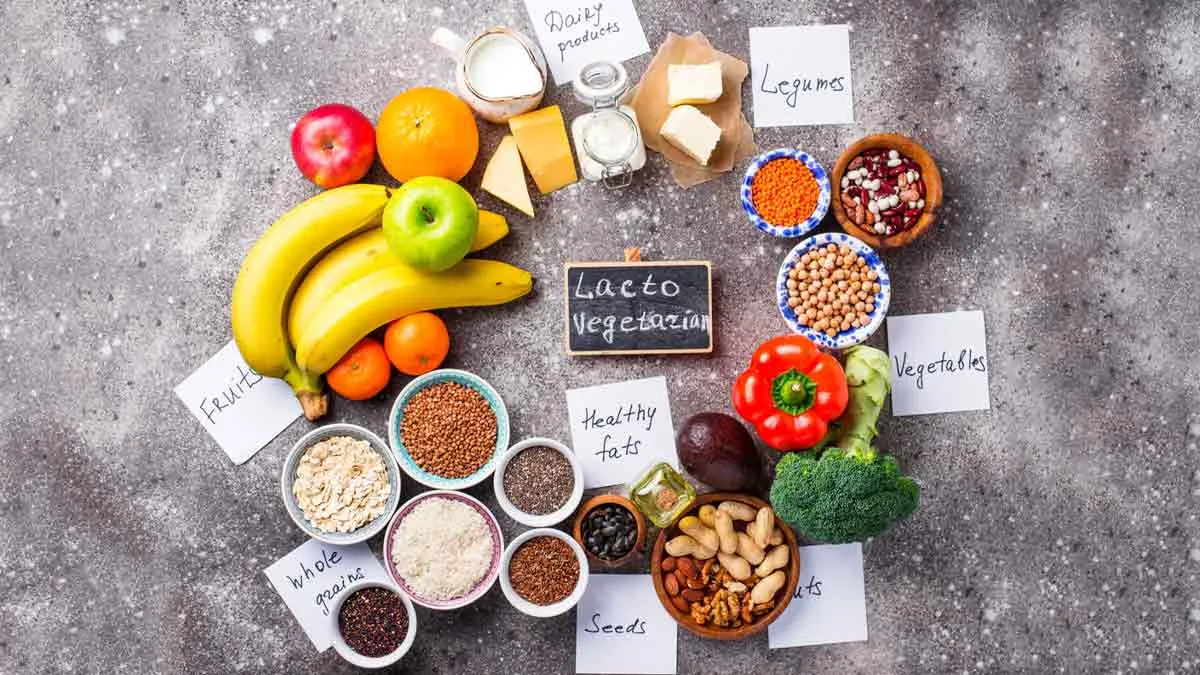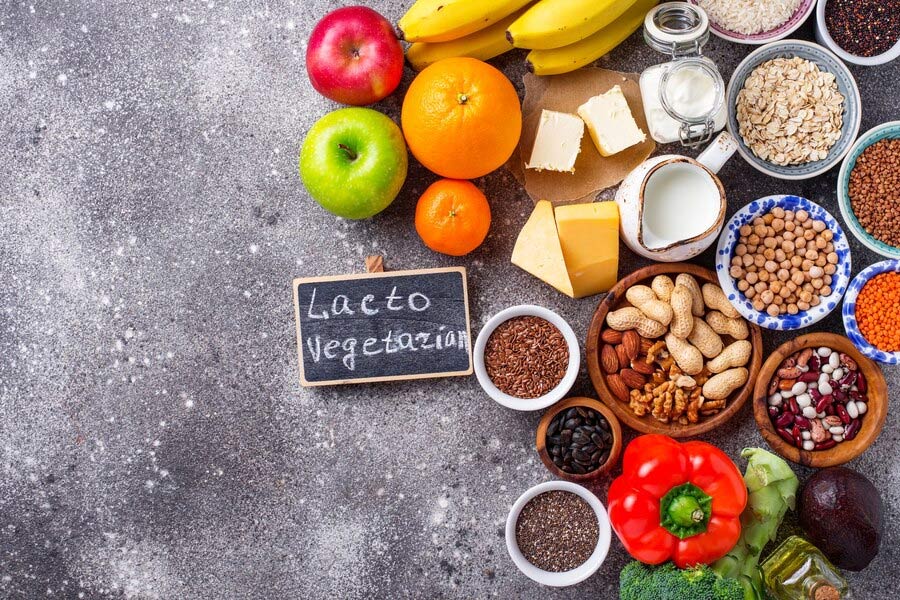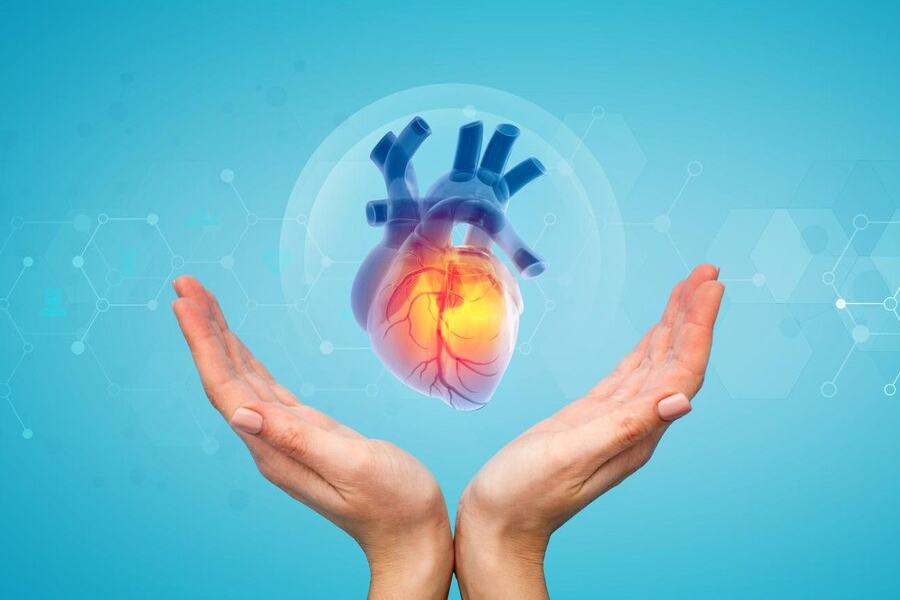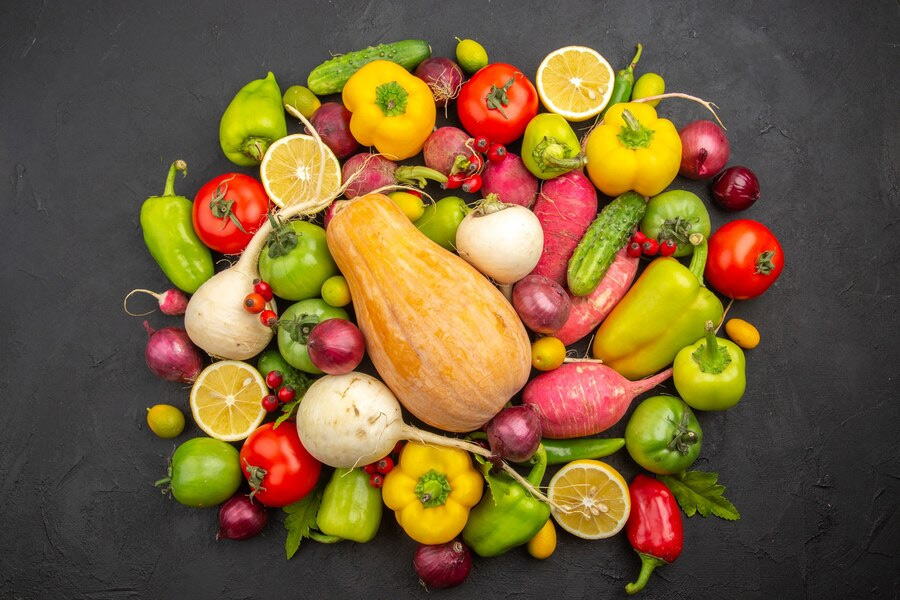
Plant-Based diets (PBD) have become increasingly popular for environmental, health, cultural, and ethical reasons. One such diet is the lacto-vegetarian diet, which is a vegetarian diet that includes plant-based foods and dairy products, but excludes meat, eggs, seafood, and poultry. But what happens once you start following such a diet? Does it benefit your health or cause nutritional deficiencies? We spoke to Safia Livingston, Dietician, Minimal Access Smart Surgery Hospital (MASSH), New Delhi, who explained the diet, its benefits, and things to consider.
Table of Content:-
What Is A Lacto-Vegetarian Diet?

The name 'lacto-vegetarian' defines what is permitted to be eaten when following this dietary lifestyle.” The word 'lacto' is Latin for 'milk', and refers to a variation of a vegetarian diet that excludes all meat, fish, and eggs but includes milk and milk products. India has the largest vegetarian population in the world, with up to 38% of the population being vegetarian,” said Livingston.
Nutritionally, vegetarian diets are supported by research as healthy due to their high fibre, vitamin, mineral, phytochemical, and antioxidant content. Although they often receive criticism for their lower protein, iron, zinc, B12, and omega-3 content, and for potentially being higher in simple sugars.
Health Benefits Of Lacto-Vegetarian Diet

When we consider the impact on health, a vegetarian diet has been found to have protective effects against heart disease, diabetes, and metabolic syndrome, which includes impaired glucose metabolism, elevated lipids, high blood pressure, and increased inflammatory biomarkers.
According to a 2015 study, a lacto-vegetarian diet can help lower total and Low-Density Lipoprotein (LDL) cholesterol (bad cholesterol), which helps prevent heart disease. Another 2018 study stated that a vegetarian diet helps reduce the risk of developing type 2 diabetes.
In addition, a lacto-vegetarian diet can have a positive effect on weight management and be a weight loss approach. A review of a 2016 study found that people following a vegetarian diet for 18 weeks shed an average of 2kg weight compared to non-vegetarians.
This diet is considered safe even for pregnant and elderly individuals, though it may require additional dietary supplementation to meet vitamin D, iron, vitamin E and choline requirements.
Also Read: Fact Or Myth: Vegetarian Food Does Not Provide Enough Protein
How To Obtain Nutrients While Following Lacto-Vegetarian Diet
To prevent being overfed and undernourished, Livingston shared a Very Important Practice (VIP) that a lacto-vegetarian should follow to obtain the necessary nutrition:
Variety

You should include a variety of fruits and vegetables in your diet, just like eating the colours of the rainbow, on your plate. The deeper the colour, the higher the phytochemical content. “Glutathione-rich spinach and broccoli improve the immune system. Anti-inflammatory, ellagic acid found in berries and pomegranate reduces cancer risk, while red and purple grapes, rich in resveratrol, can decrease heart disease and stroke risk,” said Livingston.
Intentionality
You should consume a balanced meal to reduce the risk of nutritional deficiencies. For protein, consider options like paneer, tofu, chickpeas, beans, lentils, and vegetarian protein powders. To obtain zinc and omega-3 fatty acids, include nuts and seeds, such as chia seeds, flaxseeds, pumpkin seeds, sunflower seeds, almonds, walnuts, and pistachios. You can add these to smoothies, sprinkle them on salads or yoghurt, incorporate them into homemade bread, or use them to make nut butter. Also, ensure you consume B12-rich foods, such as milk, cheese, yoghurt, nutritional yeast, and fortified cereals.
Pairing
It's crucial to be strategic with your combinations to maximise the benefits of your food. Vitamin C can enhance the absorption of non-heme iron and calcium, making them more bioavailable in the body. “Non-heme iron is found in foods, such as whole grains, legumes, leafy greens, nuts, and seeds. Foods rich in Vitamin C include tomatoes, bell peppers, oranges, lemons, and guava. However, it's best to avoid consuming iron-rich and calcium-rich foods together, as they compete for absorption in the body,” added Livingston.
“When choosing a variety, being intentional and mindful with your meals and food pairing, a lacto-vegetarian diet can serve your tastebuds, your health and convictions, to best support your wellbeing,” concluded Livingston.
[Disclaimer: This article contains information provided by an expert and is for informational purposes only. Hence, we advise you to consult your professional if you are dealing with any health issue to avoid complications.]
Also watch this video
How we keep this article up to date:
We work with experts and keep a close eye on the latest in health and wellness. Whenever there is a new research or helpful information, we update our articles with accurate and useful advice.
Current Version